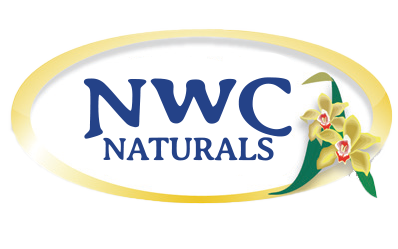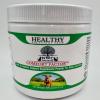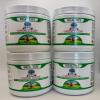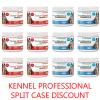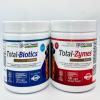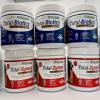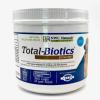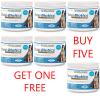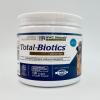YOUR VITAMINS: LEARN THE DIFFERENCE BETWEEN NWC NATURALS AND OTHER VITAMIN MAKERS
View Vitamin Comparison Chart »
Learn how to read your supplement label and know if you're getting truly natural food supplements or synthetics made from oil byproducts or coal tar.
How does your vitamin label read: Ascorbic Acid, Pyridoxine Hydrochloride, Cyanocobalamin USP, Acetate, Thiamine Mononitrate or Wheat Germ, Acerola Cherry, Rose Hips, Carrot Juice?
Understand the difference between the average vitamin pill and whole food supplementation!
There are three BASIC Supplement Types available on the Market Today:
| Natural | Natural means vitamins as found in natural foods. Untampered with any way that might change their molecular, their biological or biochemical combinations, or their action. This usually means that only the fiber and moisture are removed. All labels of truly NATURAL food concentrates should indicate the exact food source from which the vitamin is obtained. |  |
| Crystalline | Means it had a natural food as its original source but was treated with various high powered chemicals, solvents, heat and distillations to reduce it down to one specific, pure crystalline vitamin or amino acid and hence is no longer natural. It no longer has its synergistic components, that is, its enzymes, co-enzymes, minerals, mineral activators, and co-vitamin helpers. It has been reduced to a pure crystalline powder with one definite simple chemical structure. In this form it is but one simple phase of the complete VITAMIN COMPLEX. | 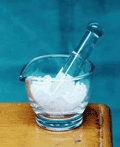 |
| Synthetic | Means that in the laboratory the scientist has reconstructed the exact structure of the CRYSTALLINE molecule by "putting together" or chemically combining the same molecules from other sources. Chemically, therefore, there is no difference between the two. The Crystalline may have a slight advantage in that it is difficult to reduce any natural product to an absolute pure state and any impurities would be "synergists" hence giving a little added value to the Crystalline over the Synthetic. On the label for either Synthetic or Crystalline only the chemical name of the single vitamin is usually given. Legally it is not necessary to give the source from which the synthetic chemical is derived. |  |
Proven Research About Vitamins
- Research has proven time and time again that vitamins from all-natural whole food sources are easier for your body to absorb, safer, and more effective than laboratory created synthetic or crystalline vitamins.
- All natural whole-foods are alive, vibrant, have all the nutritional co-factors and phytonutrients found in nature, and are full of the life giving energy you take supplements for.
- Synthetic vitamins are "essentially dead", inert, cheaper and potentially dangerous.
Natural Wellness Centers of America™ Inc only uses whole food vitamin. So why isn’t all-natural whole-food vitamins used in all nutritional supplements? Primarily due to their higher cost and the challenge they present in the nutritional "label wars" game. For example, Amla and Acerola Cherry are vastly superior sources of vitamin C than ascorbic acid. But they cost 10 to 20 times more per mg! What’s more, only small dosages are needed to fulfill the body’s needs verses the huge doses of ascorbic acid needed, and therefore they don’t "compare" well on the federally regulated nutritional supplement label.
Can you imagine the difficulty in convincing a novice vitamin buyer that 25 mg of Amla is better for their body than 1000 mg of ascorbic acid? Yet it’s true. Unfortunately not many manufacturers are willing to go through the effort necessary to educate the consumer on why he or she should take all-natural whole-food supplements when they cost more, and seemingly "appear to deliver less."
- Synthetic vitamins just do not work like foods, and foods are what our bodies recognized.
- Foods are designed for our body to use for healing, prevention and energy. There is no substitute, and no matter how you look at it, vitamin pills are an invention of scientists, so they are prone to cause side effects and are incomplete.
The problem is that vitamins, when isolated or synthesized are not in their original form (apples, oranges, broccoli, spinach, etc.) and they are merely chemicals. Our bodies do not recognize chemical vitamins as usable nutrients, because they don’t work the same way as whole foods.
Foods contain more than just vitamins; they also contain cofactors, enzymes and helper nutrients that allow vitamins to work.
Foods are never found in high potency, so you won’t suffer any toxic side effects that have been proven to exist with all chemical vitamin pills.
It is nearly impossible to overdose vitamins in its original whole food form.
The only supplement that someone should take, therefore, is a whole food formula WITHOUT any isolated or synthetic vitamins.
Just saying a vitamin is natural is very misleading. An automobile can be labeled all natural because all the parts of that car came from the earth, the steel, rubber, plastics and even the gasoline that runs it at one point came from the earth. Comparing gasoline to a supplement may not be that far of a stretch. Petroleum, coal tar and petroleum by-products are rearranged molecularly in the laboratory and are turned into synthetic vitamins like Pyridoxine Hydrochloride, Cyanocobalamin USP, Acetate, Thiamine Mononitrate, and ascorbic acid.
SYNTHETIC AND CRYSTALLINE VITAMINS ARE NOT NUTRITION!
That is an important point. Because most supplements called “whole food” are really combinations of real foods and isolated or synthetic vitamins. Carefully read the labels to see. Look for these words to identify vitamin chemicals on a label:
- Pyridoxine Hydrochloride
- Thiamine Hydrochloride
- Niacin or niacinamide
- Palmitate
- Ascorbic acid: learn how the average Vitamin C supplement is made »
- Riboflavin
- Mixed tocopherols
- B12
- Cyanocobalamin
LEARN HOW TO READ THE "CODE" WORDS ON YOUR SUPPLEMENT FACTS LABEL »
Furthermore, and most importantly, synthetic vitamins are not really vitamins at all. They are fractions of vitamins. For example, natural vitamin C is whole and complete, but ascorbic acid, which is the vitamin C used in most supplements, is missing Rutin, Bioflavonoids and the "J and K" factors. Because these vital nutrient cofactors are missing, the supplement will actually "rob" the missing elements from bodily tissues and bones. Thus, taking vitamins other than all-natural whole-food vitamins can actually create a vitamin deficiency in your body!
Here’s a hint of how to ensure you’re buying healthy all natural, whole-food vitamins. Read the label, and look for ingredient names that are from natural foods or plants. Names such as wheat germ, brewer’s yeast, green pepper, orange peel, rose hips, safflower oil, acerola cherry, shiitake mushroom, alfalfa, black strap molasses dunaliella salina, wild yam, carrot, rice bran, chickweed, wheat grass, amla, barley grass, nettles, algae, kelp, pine park, grape seed extract, turmeric, etc.
Vitamins are not foods, so instead of vitamins and minerals on a label, you should be looking for the names of foods and herbs on the label. Don’t be fooled by high milligrams, high potency, standardization or any other such terms that just do not apply to real foods from nature. Also check to see if any whole food sourced vitamin has bovine or animal based sources in it.
With NWC Inc. products you really get what you pay for – optimal health and vitality, and isn’t that why you take supplements in the first place? Our products use only vegetarian sources of whole food vitamins and only Albion patented chelated minerals.
For more information about our products click here »
